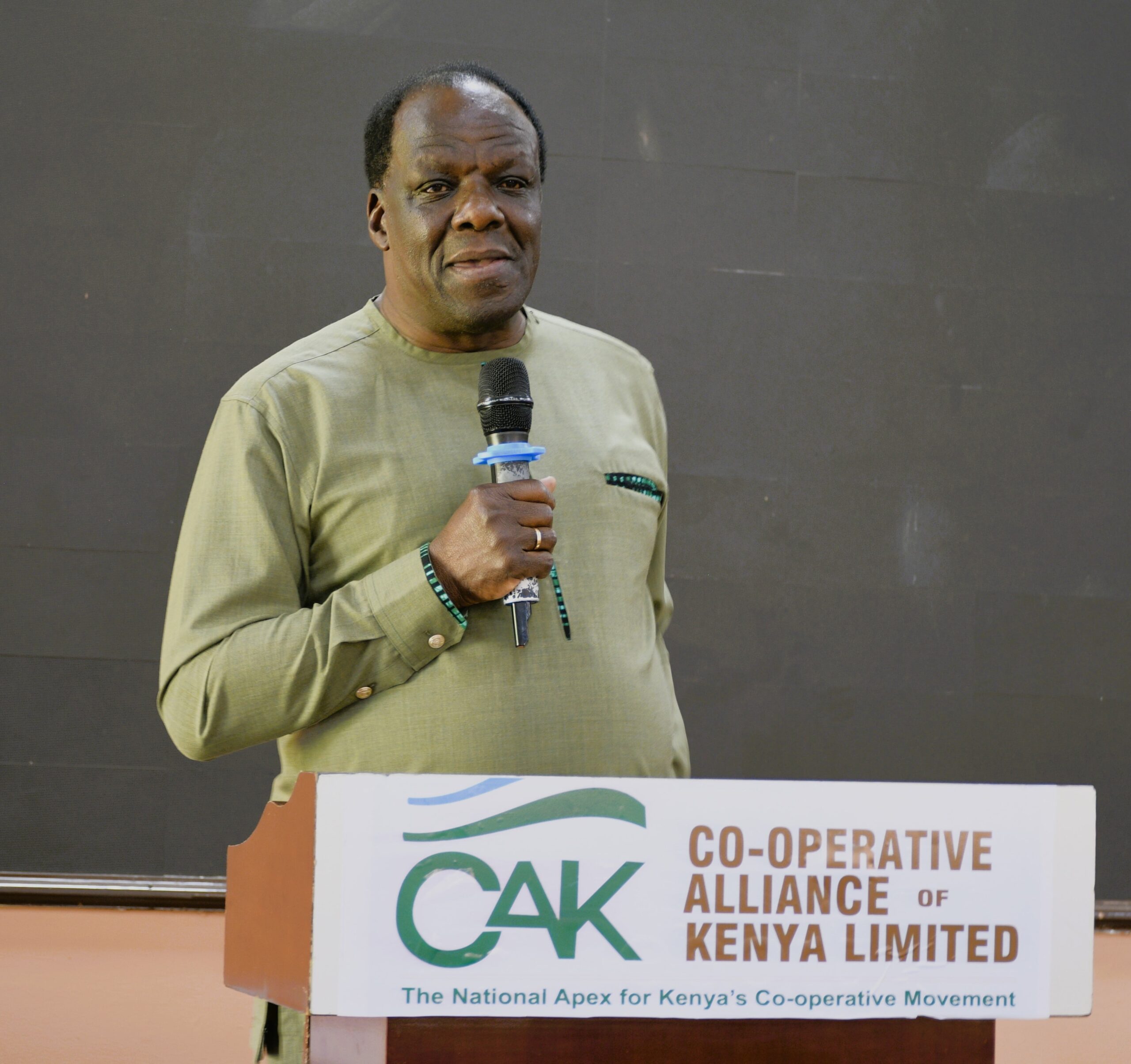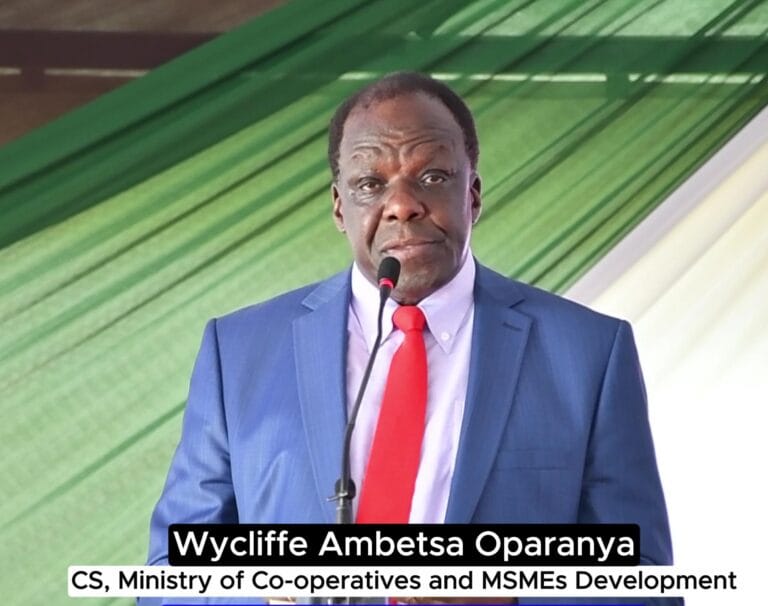By Kimuri Mwangi
In a move aimed at reinforcing governance, transparency, and accountability in Kenya’s cooperative sector, the government has issued new directives targeting compliance and operational efficiency among cooperative societies.
Cabinet Secretary for Cooperatives and MSMEs, Wycliffe Oparanya, has ordered all cooperative societies that have not filed their annual returns to do so by June 30, 2025, or risk deregistration.
“As stipulated under the Cooperative Societies Act, all cooperative societies, including unions, national cooperative organizations, and apex cooperatives, are required to file their annual returns in the prescribed manner and within the specified timeframe of the end of April 30 each year,” said Oparanya.
He expressed concern over the increasing number of societies flouting this legal obligation. “Unfortunately, we have observed a growing number of societies failing to meet this legal obligation, thereby exposing themselves to the risk of deregistration,” he stated.

He added, “Let me be clear, any cooperative society that has failed to file its returns for the last three years and within the stipulated timelines will be struck off from the Cooperative Register and will cease to exist as a corporate entity. This directive takes immediate effect, and all cooperative entities are expected to comply fully.”
Addressing Cooperative leaders in a forum convened by the Cooperative Alliance of Kenya (CAK), the CS outlined the operational challenges faced by large cooperatives, particularly those with membership exceeding 10,000. He noted that such a size makes it difficult to organize effective annual general meetings, often leading to disorganized gatherings and poor decision-making.
Oparanya said that the law, specifically Section 27(1) of the Cooperative Societies Act, vests the supreme authority of a cooperative society in the general meeting, where members have the right to attend, participate, and vote. Sections 19 and 21(a) further affirm these rights.
Acknowledging the logistical limitations of mass meetings, he issued a new directive requiring large cooperatives to restructure their governance models. “I am directing that all cooperative societies with a membership exceeding 10,000 must amend their by-laws within the next nine months to adopt a delegate system of representation. Under this system, no more than 500 delegates shall be selected to represent the broader membership at general meetings. This representation must be fair and inclusive, taking into account geographical distribution, gender balance, age diversity, and the inclusion of persons with disabilities,” he opined.
Oparanya also emphasized that the Cooperative Bill 2024, once enacted, would significantly boost governance and accountability standards across the sector.

Meanwhile, the Chairman of the Cooperative Alliance of Kenya (CAK), McCloud Malonza, lauded the government’s efforts to reform the sector, noting its substantial contribution to the national economy.
“Cooperatives have grown in this country, and with 35 per cent of the GDP coming from the cooperative savings, there is a need for governance to be stable and sound,” said Malonza. “One of the aspects we are dealing with today in this forum is to ensure that our leaders are empowered in terms of looking at the big institutions which have grown from small.”
The new measures signal a firm stance by the government to clean up and professionalize Kenya’s cooperative movement, long regarded as a critical pillar in the nation’s economic framework.










